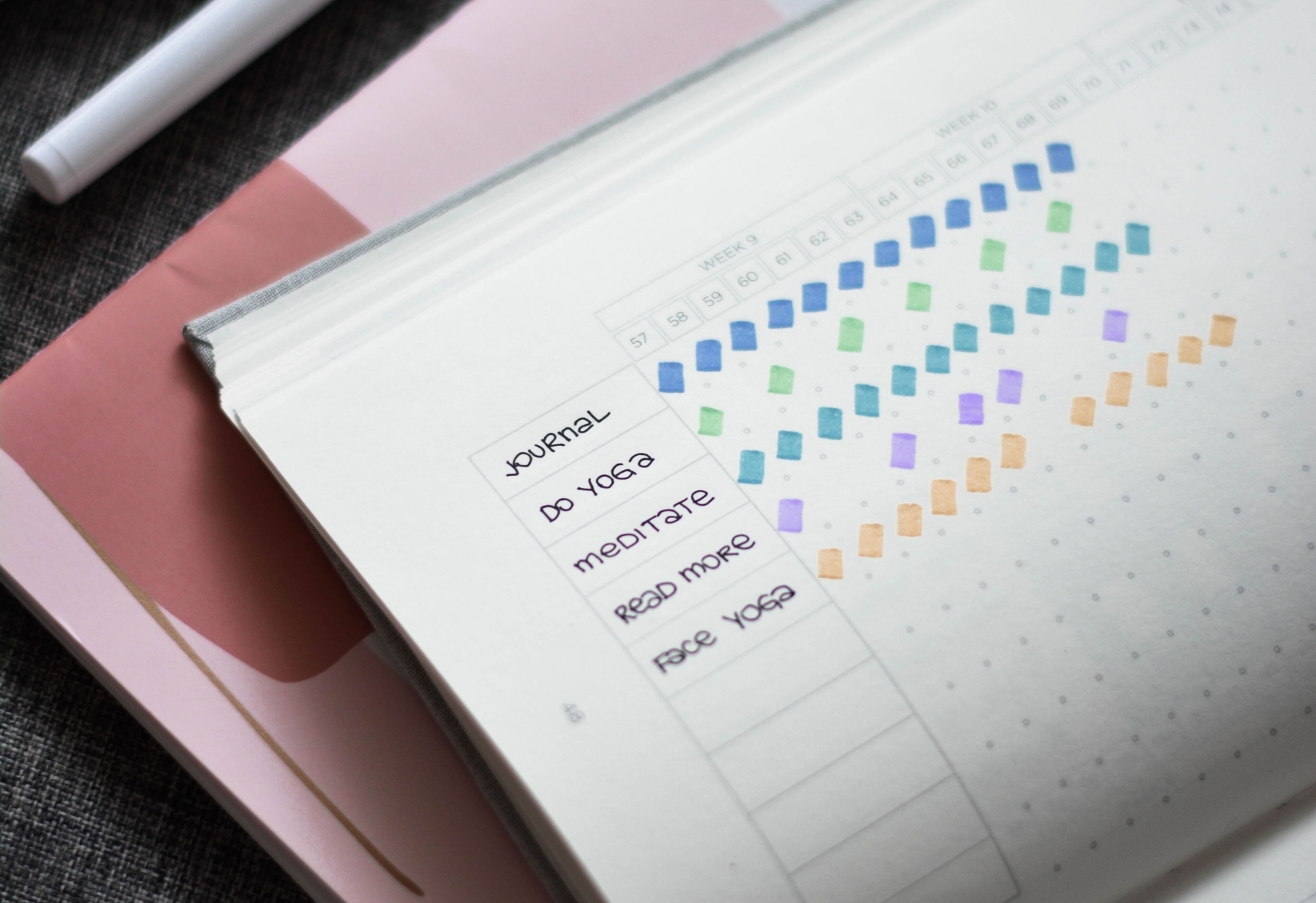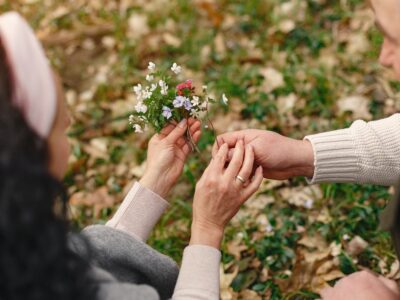Rediscovering Your Passion for Yourself, Your Life, and Your Relationship
By Kyi Phyu Maung Maung (Michelle) B.A. in Psychology and Dr. Jeremy Frank PhD, CADC., Certified Alcohol and Drug Counselor and Clinical Psychologist
Addiction recovery is a full-time job. While it demands a lot of effort, it’s not all hard work with no play. Life goes on in recovery, and we shouldn’t forget that life is abundant with wonders we have yet to explore and experience.
“E” Engage in Your Life
The fourth letter, E, of The ASCENT Approach stands for Engage in Your Life. This practice highlights one of the many fun parts of recovery. By engaging in our lives, we care for ourselves, educate our minds, and strengthen our bodies. We discover and reignite our passions. It’s all about taking charge of our lives.
Before recovery, addiction caused us to have a single-minded fixation on either a substance or our partners. Then in the early stages of counseling and recovery, we exert most of our time and energy staying on track with our recovery. But the work is not only about being sober or healing our romantic relationship. Recovery is soul work, a journey that takes us to the center of our core. We ask ourselves introspective questions: What do I like to do? What satisfies me? What makes me feel alive? We might not have all or any of the answers at the beginning — what’s important is to be curious about ourselves and to bring honesty, open-mindedness and willingness to the table.
The chaos of addiction caused us to have a tunnel vision of demands that weren’t our own. We became so entangled in our partner’s life or our relationship with drug use or alcohol use, that our personal needs went unnoticed. The “you” and “me” diminished. The practice of engaging in our life is a reminder that “you,” “me,” and “us” also exist individually. We must each embark on a personal journey to unearth the meaning of who we are and create a vision for our life. We must assume responsibility for “me” so that we begin to understand how to create healthy boundaries for “me,” “you,” and “us.”
Take Charge of Your Life
We should set out to replace unhealthy habits with positive ones. Taking small steps is the key. If you wish to improve your eating habits, start your day with a nutritious breakfast. Set the goal of planning your Monday dinner to kick off the week. Making progressive manageable changes each day is more attainable than trying to overhaul everything at once. Don’t forget to acknowledge your small victories on the way!

Focusing our attention on other interests instead of fixating on alcohol or our partner helps us from slipping into old habits. This is especially important in early recovery. The best substitute for our counterproductive old behaviors are activities that require our focused attention and provide us with a sense of satisfaction.
Tap into your creative self by joining a painting or woodworking club, turning your meal preparation into an exploration of new recipes, or creating an entirely new playlist with your friends. Research shows that engaging in everyday creative activities promote psychological well-being by increasing positive emotions.
Actively making choices for ourselves also gives us a sense of control over our lives, developing an internal locus of control. We experience the direct connection between our actions and the outcomes. Observe how much better you feel after working out and how refreshed you are in the morning after going to bed earlier.
Notice how the choices you make directly provide you with a sense of well-being. Resist the temptation to just follow what your partner, friends, or family do. Take the lead, initiate activities, and assume ownership of your choices. These are all ways that we can really “engage in our lives.”
Self-Esteem Strengthens Relationship
There’s a strong positive relationship between self-esteem and having an internal locus of control. We have a better opinion of ourselves and our abilities if we take accountability for our lives. When you decide to participate in the neighborhood clean-up, the sense of belonging you feel is the result of the active choice you made. This feeds your self-worth.

As we garner more self-esteem, we also strengthen our relationships. A study has found that self-esteem plays a role in how we deal with challenges in our relationships. Partners with low self-esteem tend to distance themselves from the relationship in fear of rejection from their significant other.
Try counting how many times in a day you doubt your own opinion, go along even when you want something different, or give up easily when you don’t receive immediate approval. Low self-esteem leads to avoiding confrontation about sensitive topics with our partner to protect our fragile opinion of ourselves.
As a result, we resort to ‘stonewalling,’ also known as the silent treatment. Dr. John Gottman, a leading expert in marital stability, stated that criticism, contempt, defensiveness, and stonewalling are the Four Horsemen that erode relationships. Regular avoidance erodes our relationship. Our partner will become infuriated or tired of talking to a wall, typically causing them to physically and emotionally turn away. Our goal is to connect, not block our partners.
On the other hand, research shows that high self-esteem is strongly related to life satisfaction. Our view of ourselves extends to how we see our lives and relationships with others. High self-esteem empowers us to make decisions for ourselves, build healthy boundaries, and pursue genuine relationships — the ingredients to a satisfying life.
Rekindle Passion in Your Relationship
Have you noticed that you find your partner more attractive when they’re doing something they love? Humans have a fundamental desire to expand and grow as individuals. One of the ways we self-expand is through relationships, primarily with our partners.
Engaging in a self-expanding activity with our partners ignites feelings of passion and excitement that we first experienced early in our relationship. Baking your favorite cookies, learning to roller skate, redecorating your apartment, or doing yoga together are just a few examples of ways you can grow together.

Engaging in an activity with your partner can be twice as meaningful and less stressful than doing it alone. So do it together! If you can’t, find ways to support each other rather than giving up something one of you enjoys. For instance, you don’t necessarily have to play tennis together to share in the experience. Consider dropping by to cheer them on. Just seeing your partner enjoying themselves will increase connection in your relationship and your desire for them.
Being involved in creative outlets fosters positive emotions, strengthens our immune system, and reduces anxiety. All that positive energy nurtures our relationship. “Honey, I mastered baking my favorite chocolate eclairs at class today!” is a lot sexier than “I just watched TV while you were playing football with the guys.”
The freshness you bring into your relationship converts into energy that fuels an upward spiral. The glimmers in your eyes from that feel-good sensation will bring light into your connection with one another. Everyone wins!

Reconnect and Get in Touch with Yourself
Recovery allows you to rediscover hobbies that were brushed aside during active addiction, giving you strength and space to return with more confidence. Have you been putting off finishing your creative projects? Maybe it’s time to pick up that half-knit scarf. Consider reconnecting with your gym buddies or friends from the pickleball team (i.e. Create Your Community). We have a lot of muscle memory. Returning to the skills we once had developed plays an essential role in building our self-esteem, while familiarity provides a comfort zone.
If you’re uncertain about your interests, see this as an invitation to try out new activities and explore what you like and dislike. What are some activities you’ve always wanted to try? Have you been thinking of starting a blog? Maybe it’s starting a weekly game night with the family? If you like photography but aren’t ready for a class, grab your camera, walk around your neighborhood, and see it through a different lens.

Engage in Life Together
As we gain greater self-awareness, we also turn towards our partners. Later in recovery, we seek to attend to and balance the responsibilities in our lives, such as our health, interests, and relationships. When we decided to take charge of our relationship, we ask questions like, Have I been spending enough time with my partner? Joint leisure time is shown to promote relationship stability, so naturally more interactions between partners bring us closer.
What are some activities you wish to pursue as a couple? Pause from your daily hustle. You could light scented candles and have a spa date at home. Or search for healthy recipes and cook dinner from scratch together. Unwind from a long day by listening to your favorite music, snuggling, reading something together and catching up with each other. You can also develop a skill together, like learning how to budget or a new language. The unknown becomes less feared in recovery. You might surprise yourself when you hear each other laughing at your beginner’s mistakes.
You Can’t Pour From an Empty Cup
An old saying, “You can’t pour from an empty cup,” perfectly captures the importance of self-care. As cliché as it sounds, to love our partner wholeheartedly, we need to love ourselves first. The battle with addiction robbed us of self-love; we neglected our needs, put off self-care, and forgot our purpose in life. By engaging in your life, you’re reclaiming yourself.

The journey of recovery is akin to hiking. As you and your partner hike uphill, you focus on the path ahead. Naturally, you fall into a rhythm, helping each other across streams and reminding each other to drink water once in a while. After a while, you might want to photograph sunlight through the branches; your partner may want to climb some boulders. But when you reach the lookout, tranquil pond, or picnic spot, the energy you feel and share is the magic of engaging in life together.
Read More About The ASCENT Approach
JFA produced a series of articles on our blog that explore each component of The ASCENT Approach in greater detail. We encourage anyone interested in this approach to check out these articles to better understand the practices of the approach.










